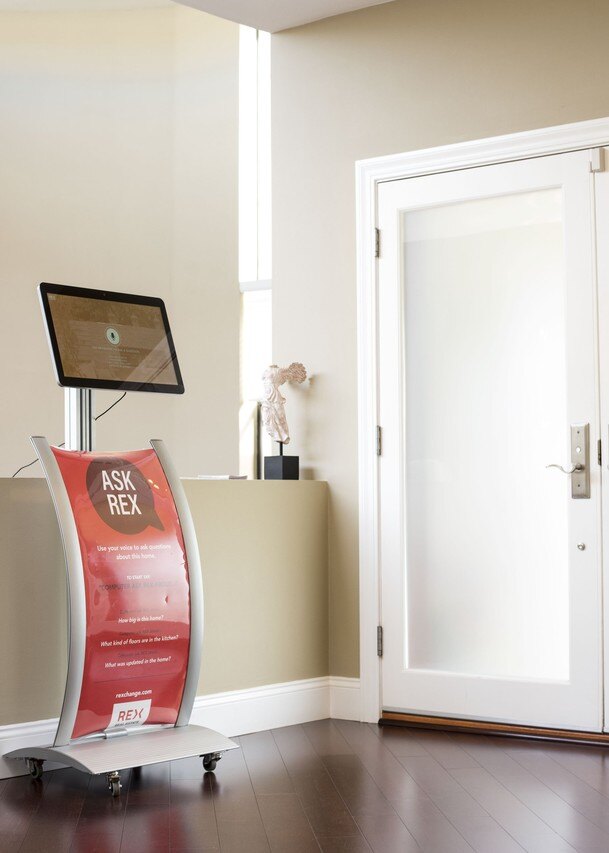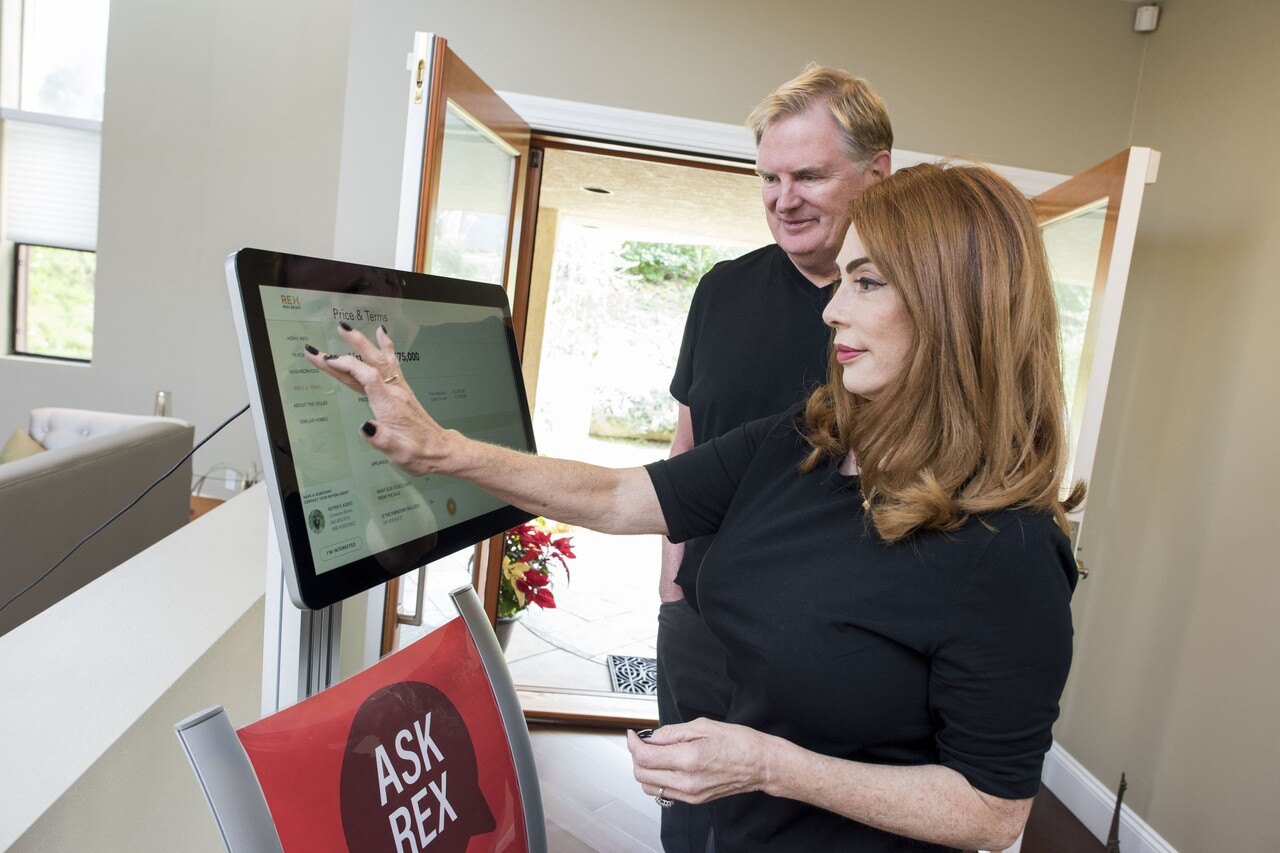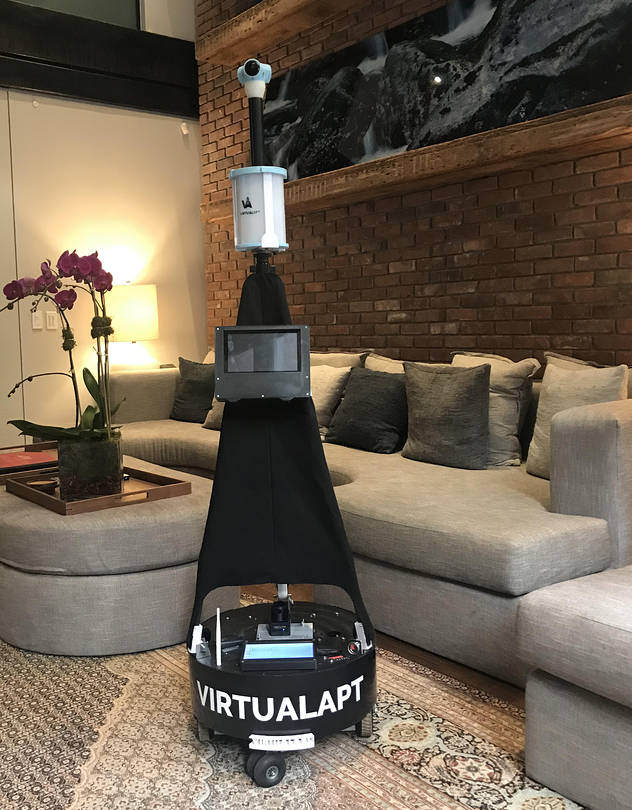Why Your Next Real-Estate Deal Might Involve a Robot
New crop of companies is betting that robots will upend how properties are sold and rented. ‘It was a little weird,’ one client says

Right before Laura Franco went to look at a three-bedroom apartment for rent in Santa Clara, Calif., in mid-January, she got a surprising text message from the property manager, Zenplace.
“They said a robot would meet me at the property. I thought, ‘a robot?’ ” said Ms. Franco, 31, an event planner and bartender. When she arrived at the listing, a text message provided her with a code she used to let herself in. Then a long-necked white robot on wheels, with a screen that looks like a small tablet, rolled up to her. The face and voice of Rabia Levy, a real-estate agent at Zenplace, greeted Ms. Franco from the screen and told her to follow the robot around as it gave her a tour.
“It was a little weird,” said Ms. Franco, who signed a deal last week for a $3,925-a-month apartment she found through Zenplace. “It was like she was there but she wasn’t there.”
It’s the brave new world of real estate by robot. A new crop of companies is introducing technology they say will reshape how property is rented and sold. By using robots to do some of the tasks that people normally handle—such as showing properties, creating floor plans and shooting video of homes—these firms hope to bring a leaner, more-efficient approach to the traditional real-estate business.
Could a Robot Sell Your Home?
A new crop of companies is betting that robots will upend the real-estate business. One California couple is using a robot from a brokerage called REX to help answer prospective buyers’ questions.









REX, a brokerage based in Woodland Hills, Calif., places a robot in each seller’s home that answers property questions and collects data from people touring the homes. Brooklyn-based VirtualAPT invented a robot that makes three-dimensional property videos. Sunnyvale, Calif.-based property manager Zenplace’s robots allow agents to communicate remotely through a screen rather than having to drive around showing properties.
Each of the companies launched in 2016 and say they are growing fast. VirtualAPT said it expects to film 10,000 residential units within the next 12 months; its clients include broker Stribling & Associates and agents with Douglas Elliman. Zenplace, which currently operates in the San Francisco Bay Area, San Jose and Los Angeles, plans to launch in places including San Diego, New York, Texas, Washington state and Florida this year, said chief executive Rahul Mew

Traditional brokerages see value in technology but don’t see robots or artificial intelligence displacing human agents or reducing their earning power. “I believe that agents are critical to transactions and always will be,” said Robert Reffkin, chief executive of Compass, a New York-based real-estate brokerage. Compass has invested heavily in technology, Mr. Reffkin said, but doesn’t use robots to minimize the agent’s role.
The founders of REX, including chief executive Jack Ryan, believe that robots, big-data analytics and artificial intelligence will disrupt the traditional real-estate business, starting with the typical 5% to 6% commission agents charge sellers. REX charges a 2% commission. Instead of listing properties on the Multiple Listing Service, which real-estate agents use to market property to each other, REX markets houses directly to consumers on platforms including Zillow and Trulia.
Scott McNealy, the former chief executive of Sun Microsystems, said he invested in REX because he believes its technology will enable it to sell houses more efficiently than individual real-estate agents can. The robots REX places in homes “are far more intelligent than a real-estate agent,” Mr. McNealy said.

Ron Foll, a 59-year-old attorney, and his wife, Lorelei, recently had Rex the Bot installed in their home in Thousand Oaks, Calif., which they have listed with REX for $1.675 million. The bot at the Folls’ is a monitor mounted on an approximately 5-foot tall platform with a sign that says “Ask Rex.” At an open house in early February, the robot fielded questions from many of the 30 people who came to see the house, said Ms. Foll, a 64-year-old homemaker.
The bot is programmed with detailed answers to over 75 questions buyers tend to ask about houses. It records the questions each buyer asks—and feeds that information into the potential buyers’ profile. This information helps REX figure out what other homes to market to those same buyers, said Mr. Ryan. A REX employee is also on site during home showings and can provide information, too, Mr. Ryan said.
In the case of VirtualAPT, the robots that do the work are never seen by property seekers, rolling into homes to create floor plans and recording 3-D video to use in online marketing. The cost is 50 cents per square foot, making it a relatively inexpensive way to create a higher-quality tour.
The majority of clients thus far have been residential brokerages in the tri-state area who use the robots for high-end listings, said chief executive Bryan Colin. In November, Brooklyn-based agency EXR signed a deal with VirtualAPT to create virtual tours for every property on its website.
By Katy McLaughlin

